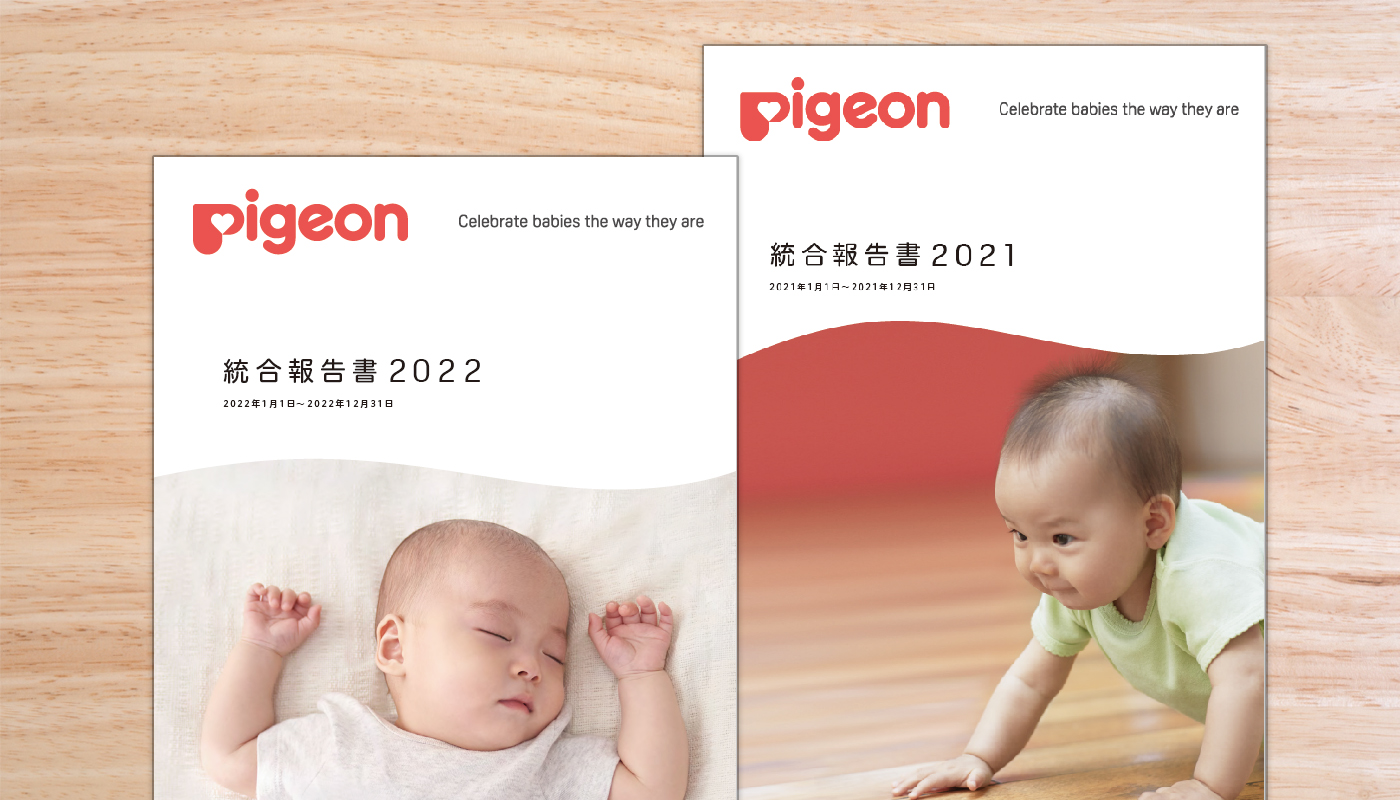In all of the businesses it operates, the Pigeon Group (“Pigeon”) delivers its corporate philosophy, “Love,” to everyone who needs assistance in pregnancy, childbirth, child-rearing and elder care, in the form of products and services. Pigeon also pursues sustainable operation from an environmental, social and governance (ESG) perspective. Moreover, by creating new value through the products and services it provides, Pigeon’s business activities contribute to solutions to social problems, as represented by the Sustainable Development Goals (SDGs).
One of the ESG issues Pigeon tackles is the sustainable reduction of environmental impact. One of Pigeon’s initiatives in this regard is to work with suppliers on the management of chemicals contained in products, to ensure that all products delivered to Pigeon customers are safe and environmentally friendly. These efforts cover all chemicals regulated under international regulations and agreements such as the Stockholm Convention on Persistent Organic Pollutants and the Registration, Evaluation, Authorisation and Restriction of Chemicals (REACH) regulations.
Management of chemicals contained in products
Pigeon divides its management of chemicals into two levels, “procurement-prohibited substances” and “procurement-controlled substances,” in consideration of regulations in the countries where Pigeon products are sold as well as other regulations which are internationally influential. Chemicals subject to control are regulated as described below. The chemicals included in products are managed at the design and development stages and for products that Pigeon purchases continually.
1. Procurement-prohibited substances
These are substances whose use is prohibited under international treaties and/or domestic law.
Pigeon does not manufacture or sell products that intentionally include these chemicals.
Pigeon instructs its suppliers to furnish proof that they do not use these prohibited substances and confirms that said substances are not used.
- Stockholm Convention on Persistent Organic Pollutants
- Substances designated as Class 1 Specified Chemical Substance in the laws concerning regulations on chemical substances in evaluation and manufacturing. (Japan)
- Substances prohibited from sale under the domestic laws of each country and region in which Pigeon products are sold
(Persistent and bioaccumulative substances that have long-term toxicity to humans and/or to higher-order predatory animals) (Countries other than Japan)
2. Procurement-controlled substances
These are chemicals for which the quantity included in products is restricted, or whose inclusion is restricted for specified applications, in accordance with restrictions in international treaties and laws and commensurate regulations.
Pigeon controls and restricts the quantities of these chemicals included in its products.
Pigeon requires its suppliers to conduct investigation and report on its use of the following substances:
- Substances listed in Appendix XVII of REACH
- Substances listed in the Candidate List of REACH
- Substances governed by the EU Restriction of Hazardous Substances (RoHS) directive (applies to electrical products only)
- Substances designated as Class 2 Specified Chemical Substance in the laws concerning regulations on chemical substances in evaluation and manufacturing. (Japan)
- Chemicals whose use is restricted under the domestic laws of each country and region in which Pigeon products are sold (Substances that carry a risk of impact on human health or ecosystems) (countries other than Japan)
Substances prohibited from procurement
“Bisphenol A (BPA)" Substance of Concern
We occasionally receive inquiries about "Bisphenol A (BPA)" as for your concern about endocrine disruptors. Currently, the materials of the nursing bottles we offer are made of glass, PPSU (polyphenylsulfone), PP (polypropylene), and T-Ester. None of them contain bisphenol A (BPA).
We also use materials that do not contain bisphenol A (BPA) for products that come into contact with breast milk, such as breast pumps and nipple shields, and for products that go into the mouths of children, such as tableware and pacifiers. We are committed to providing our customers with products that are safe to use.
In order to ensure that our customers can use our products with peace of mind, we inform through our product packaging and website pages in Japan and overseas that our products do not contain any bisphenol A (BPA).
Communicating information to customers (as examples)
Chemical Substance Data reported under the Pollutant Release and Transfer Registers (PRTR) system
The PRTR system in Japan requires business operators to monitor the amount of chemical substances (Class I Designated Chemical Substances under the Act on Confirmation, etc. of Release Amounts of Specific Chemical Substances in the Environment and Promotion of Improvements to the Management Thereof ) that may be harmful to human health and ecosystems and are released into the environment such as atmosphere, rivers and other waterways from their business premises, and soil on their sites and the amount transferred into sewage and in wastes to be treated out of the premises. Business operators are obliged to report to their regional or municipal governmental authorities of the amount of releases and transfers of the chemical substances if the amount of the Class I designated substances and Specific Class I designated substances handled at their business premises in a year is 1 tonne or more and 0.5 tonne or more, respectively. Pigeon Home Products Corporation handled more than 1 tonne of the five Class I designated chemical substances listed in the table below in a year, and therefore reported the release and transfer of these chemical substances to its local government. All of the transferred amounts of the five substances in the table below at Pigeon Home Products Corporation were the amounts that were included in waste transferred outside the business premises, and none were transferred to the sewage system.PRTR Data(Pigeon Home Products Corporation)
*1 Total amount released into the atmosphere, public water bodies, soil on the site and landfill disposal on the site.
*2 Total amount transferred to the sewerage system and the amount included in waste transferred outside the site.
*3 Each fiscal year period starts from 1st April and ends on 31st March.







